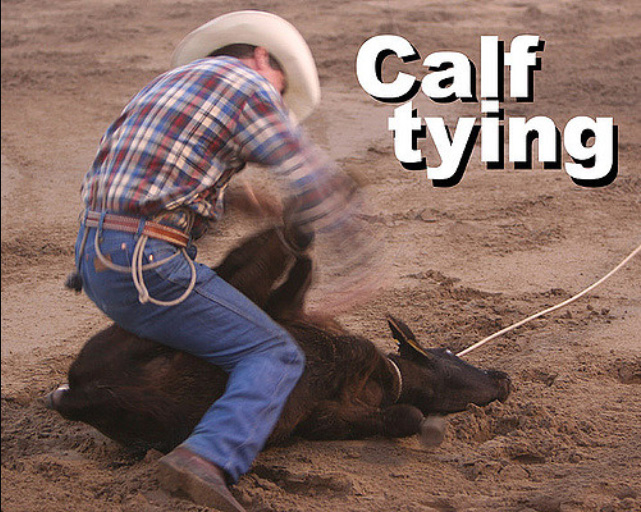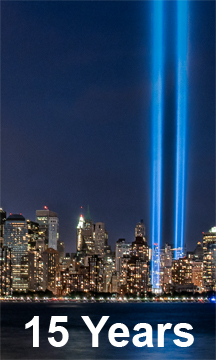I was thinking about the concept of transcendence today as I worked on my roof. To give you some idea what I think about it, I have to tell you a couple of stories.
The Heifer Who Almost Killed Me
 I grew up with rodeo cowboys, as I’ve said here more than once. There are cowboys who ride and cowboys who rope (this is drastically oversimplified), and my people were that second type. The riders ride either bulls or broncs or both, and are widely known to be right on the edge of crazy. Ropers are saner and more down to earth.
I grew up with rodeo cowboys, as I’ve said here more than once. There are cowboys who ride and cowboys who rope (this is drastically oversimplified), and my people were that second type. The riders ride either bulls or broncs or both, and are widely known to be right on the edge of crazy. Ropers are saner and more down to earth.
Nothing prevents riders from roping, but the gear for the basic skill is considerably different — if you ride, you only need to carry your rigging from rodeo to rodeo, but if you rope, you have to bring along your horse — so the crossover is less than you’d expect.
Each skill takes a LOT of practice. Tie-down roping involves casting a loop over a running calf, stopping your horse and leaping off, running down the rope to the calf, throwing it onto its side, scooping up three of its legs and tying them securely together with a little rope called a “pigging string.”
And before you comment, no, it’s not kind and gentle. But this was Texas, it was the early 1970s, and it was (is) a subculture steeped in the lore of meat production, where all cattle are categorized as Things.
On one particular day, I rolled up at the house of my cowboy friend Roger, catching him practicing tie-down skills out in his corral. Roger always kept a half-dozen calves on hand for practice, and he had a new heifer he was working with. The main rope was tied to a post, the heifer was out at the end of it, and Roger and another cowboy, Leslie, were resting between goes.
“You wanna try this calf?” Roger asked. “Sure!” He gave me his pigging string, I grasped the rope while Leslie pulled the heifer’s tail to hold her in place, and Roger said “Go!” I ran down the rope toward the heifer, Leslie let go of her tail just as I got there, and … she exploded. I swear she leaped six feet in the air, twisting and kicking and bawling.
There’s a bit of cowboy Jiu Jitsu you do on tie-down calves. I won’t describe it, but it’s a move that usually gets them on the ground with relative ease, even if they weigh as much as you do. That move, which I knew and had used many times, simply didn’t work on this calf. She hovered several feet off the ground and exploded repeatedly — bang! bang! bang! — and there was only one thing I could do to keep from getting royally kicked and pummeled. Which was: Give up. Step away. Stop trying.
I looked back at Roger in incredulity, and he was grinning broadly. I went back to it, trying over and over to get the thing done. In the half-minute or so in which all this took place, there were three separate instants when I just gave up. But each time I dove back in, not wanting to be beaten in front of my friends.
I have a permanent reminder of the battle — a crooked finger — but I got that b*tch down and tied. Roger and Leslie — who were both big boys compared to little 125-pound me — both nearly died laughing.
The Event Program That Almost Killed Me
While I was working for a resort-town magazine in California, my boss took on production of the program for a Winter Special Olympics event in Lake Tahoe. The programs were being printed in Los Angeles on Friday, and the last step was for someone to pick them up and take them to Lake Tahoe, roughly an 8 hour drive, in time for the opening of the event on Saturday.
That someone was me. I was test-driving 4WD vehicles at the time, and I had a good-sized Chevy pickup that week. The plan was I would drive down early Friday, pick up the 20,000 or so event programs, then drive them to Lake Tahoe that night. Everything went fine until I got there — late because of traffic — and discovered …
Challenge 1: The place was closed. Oh, crap, oh crap, oh CRAP. I walked around the huge building trying doors and pounding with my fist. Finally I found one that was unlocked and went inside, to find ONE person still there. He agreed to load the programs with a forklift. But then …
Challenge 2: The programs weighed close to a ton. WAY over the carrying capacity of the truck. I’d have to rent a trailer. The problem was …
Challenge 3: My boss had given me no money for this trip, and had GONE ON VACATION. I had no way to reach him. So okay, I’d use my own credit card. Then …
Challenge 4: It was already late, like I said, and the U-Hauls were closed. Fortunately, I found a nearby U-Haul which still had one guy there willing to answer the phone. He agreed to rent me a trailer. Also fortunately, the truck bumper had a hole for a trailer hitch ball. But as the guy was screwing on the big nut while attaching the trailer hitch ball, he cross-threaded the nut and damaged the whole thing. And …
Challenge 5: It was the last trailer hitch ball he had in that size. Argh. He was able to call another U-Haul and locate another hitch ball. I called the printer and begged the guy to stay until I got there, then drove over to get the ball. The guy installed it flawlessly this time, attached the trailer, and I got to the printer for loading the programs. Whew. Already damned tired, I started driving. But six hours into the trip, I was well up into the mountains, and …
Challenge 6: It started snowing. Bloody hell! I’ve driven trailers before, but not trailers carrying a ton of cargo, and damned sure not on windy mountain roads IN THE SNOW. But the event started first thing in the morning. I had a co-driver with me, another guy who worked for the magazine, but …
Challenge 7: It was already after midnight and he wasn’t willing to drive in the snow at night, preferring to be dropped off in our hometown, which was along the way. “Just tell the boss we weren’t able to do it. He can’t expect you to drive through snow all night.” But he could expect it, I knew. Considering these programs carried advertising, which dozens of Tahoe merchants had committed to pay for, and which they would NOT pay for if the programs didn’t arrive in time, and considering this was the Winter Special Olympics, which a LOT of kids and parents had traveled great distances to be in … Well, hell, I had to try. I started driving. I drove through the snow, sometimes creeping along in near white-out conditions, for EIGHT HOURS.
I got to Lake Tahoe just before 9 a.m. Volunteers unloaded the programs, I returned the trailer to a local U-Haul, and then, practically hallucinating from exhaustion, looked for a motel room. But …
Challenge 8: There were no motel rooms to be had near where I was. I had to drive all the way around the lake to find one. But I did finally find one, and I slept for more than 10 hours.
Fake Transcendence
The word transcendence means something like “surpassing ordinary limits.” But it carries almost inseparable religious and/or spiritual implications of moving beyond reality or physicality.
It has that same old conceptual mistake built into it, the idea that we’re ghostly beings who reside — temporarily — in physical bodies. The thing is, we’re not. We’re not selves that live in bodies, WE ARE THE BODIES.
Every philosophical or religious or spiritual formulation that has someone “going out,” leaving behind their body, is an absolutely empty set. It’s false at its base. If you are your body, you simply can’t leave it. There’s nothing in you that can leave, and there’s no thing that can be left. In my view this “going out” idea CANNOT lead to any useful thought or practice within the human experience.
Real Transcendence
There’s this other possible type of transcendence that has nothing at all to do with minds and bodies diverging. But as usual, the religious/mystical field’s wrong answers mask this much more useful one.
The transcendence I’m talking about here is the kind where you go beyond your own psychological limits. The sort I described above, where I did two things that were well beyond what I normally think I’m capable of. I transcended. Not my body, but my own imagined limit. I was able, in each of those moments, to get closer to my REAL limits and do things that were, for me, amazing.
Military training, as I understand it, is in some part about just that. Teaching young men and women to experience the pain, the exhaustion, the hunger and thirst, and yet continue to stay on mission. To face immensely difficult situations and keep going no matter what. There are situations in non-military life that can teach that same thing — farm and ranch work, for instance, or parenting a 2-year-0ld — but it’s probably something everyone should know.
The type of incidents related above, where I transcended my own imagined limits, have actually been pretty rare in my life. I might be able to dredge up half a dozen, possibly as many as 10. For the rest, I’ve stayed well inside a line of comfort, avoiding fear and difficulty and challenge way too much of the time. I suspect most people are like me in this way.
I doubt transcendence is something that can be taught with words. You have to DO it, experience it for real by actually pressing on in real life past fear and exhaustion and pessimism. But the lesson of “You can do more than you think you can” should be in the forefront of our minds, every one of us, for all of our lives.
Something worth teaching, I’d say.
 I’ve recently been toying with the idea that each of us has an “adaptive limit.”
I’ve recently been toying with the idea that each of us has an “adaptive limit.”







